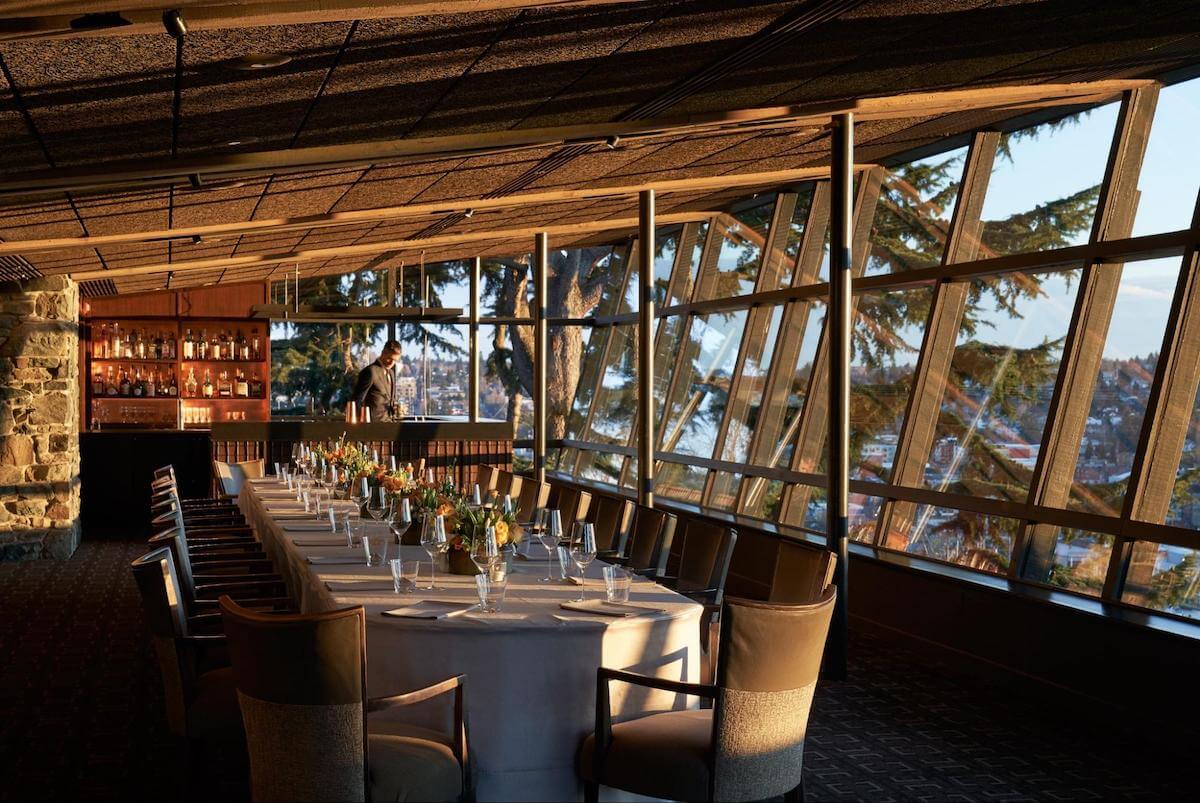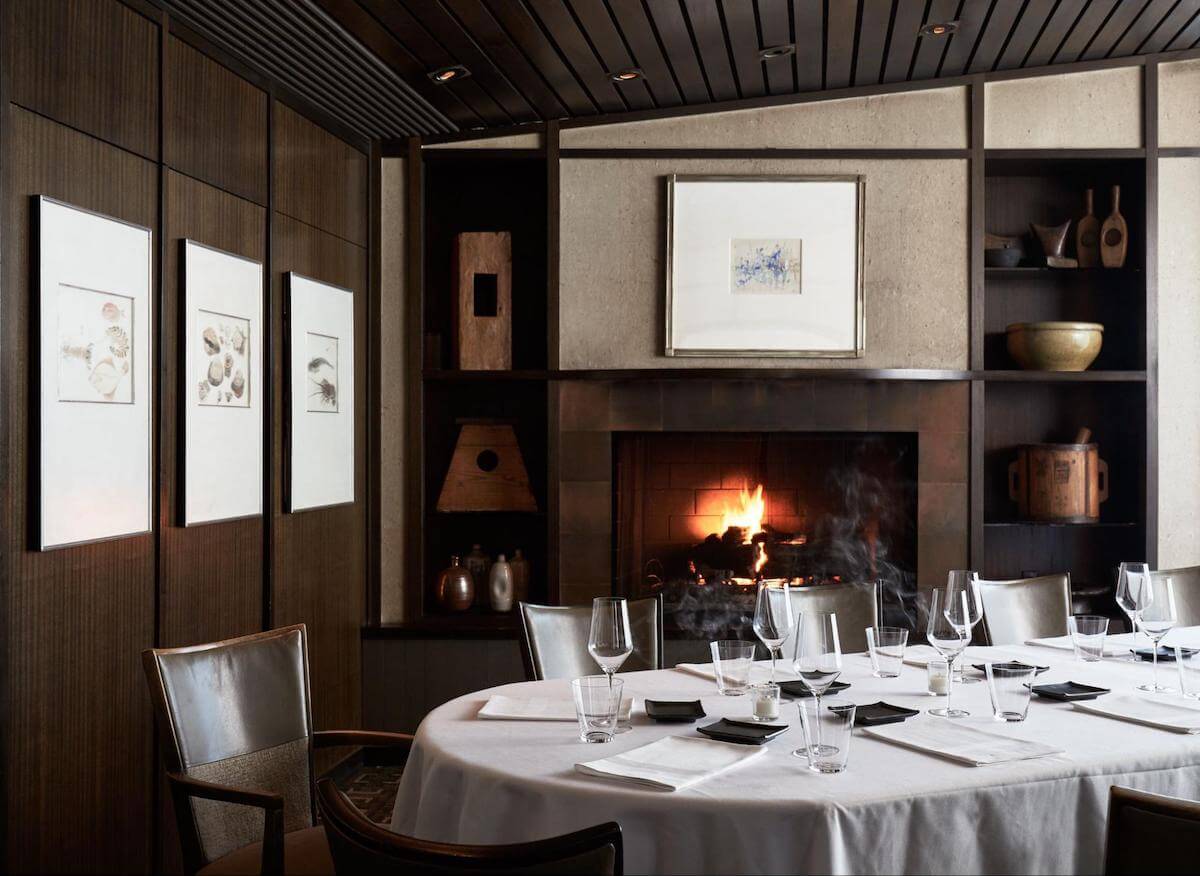Conversation with Mark Canlis: Lessons from a restaurateur
Skip the article and turn takeaways into action by scheduling a call with our team.
Working in the restaurant industry isn’t easy, no matter your position. So, getting some advice from one of the top restaurant owners in the U.S. is a sound way to wrap your head around just how the industry works. This includes all the changes the industry has been through in the wake of the pandemic. So, Yelp invited famed restaurateur Mark Canlis of Canlis Restaurant to share some of his views—and here you’ll find lessons from a restaurateur that are simply irreplaceable.
For reference, Canlis has been around for seven decades, so clearly they’re doing something right. As one of Seattle’s most established fine dining restaurants, Mr. Canlis is well-positioned to offer some important lessons—including life lessons in general—about running a restaurant.
So, whether you’re a first-time restaurateur, well-established in the food service industry, or are simply curious how the industry works from the inside out, this interview is a goldmine of wisdom. Let’s go over some of the key takeaways of the discussion, led by Josh Kopel, head of the California Restaurant Association.
Why be in the restaurant industry?

One key question all restaurant owners should ask themselves is why they want to be in the restaurant business in the first place. When asked his mission and, even more, why he would want to run this business, Mr. Canlis had some valuable lessons to share.
First, he noted that the Canlis mission is to inspire all people to turn toward one another—which he recognized as a latent potential in the hospitality industry in general. As a long-term family business, everyone involved in the business has put in more than their fair share of hard work, including translating their vision to reality.
Nowhere in the world can a leader wave a magic wand and make change happen overnight. This is a key point in Mr. Canlis’s messaging: Restaurants have to earn their place every single night, and nothing comes as a birthright or as a gift. Building trust with staff, customers, and the community in general takes time, and trust is something earned rather than given. After 18 years in the industry, he feels like he’s just now getting the hang of it. His humility is, well, humbling, and it’s something people in any industry could take a cue from.
Just like there are plenty of good reasons to be in the restaurant industry, there are plenty of bad ones. A good reason, for example, is a desire to bring people together and to serve them as best as you can. A bad example is thinking that one is a good cook or likes restaurants. That isn’t enough—there needs to be a way to be a positive part of the community. Those that truly shine have love in their hearts for both food and people.
On managing oneself and managing staff

“To be awesome at work you need to be awesome at home,” said Mr. Canlis, and we can’t agree more. The restaurant industry is all about people—whether customers or staff—and a person has to find a healthy balancing act between home life and work life. While a person could work 100 hours a week, it wouldn’t be sustainable, and the multitasking involved would drive a person to failure.
Mr. Canlis noted that working with his brother and having a healthy home life with his wife and three children made his life manageable and meaningful, and the holistic human aspect contributes to his business’s success. If you and your family are falling apart but your restaurant is successful, well, what’s the point?
For that reason, Mr. Canlis ensures he takes a solid two days off a week, during which he responds to no business emails or phone calls (except those from his brother, of course). He’s considering what a four-day work week would look like for his staff—a move that many companies are considering. Doesn’t that sound lovely?
As he put it, “You can work all you want, but staff are looking for a leader who’s crushing it at home, too.” Work cultures of all varieties can take note there.
Indeed, sacrifices are necessary at work to ensure that a home life is stable to ensure a healthy life overall. Staff need to be guided not just in their functions as workers at a restaurant but as full-fledged people. And aren’t they, after all? Someone who’s happy in their life in general will do much better at work than someone who’s only successful at work.
As a manager, Mr. Canlis holds his staff to high but reasonable standards. Showing you care is one of the most valuable things a manager can do to motivate their staff in any industry. Preventing problems before they start by having an honest conversation with staff regarding small infractions prevents bigger problems down the line. The saying “A stitch in time saves nine” applies to the restaurant industry, from dishwashers all the way to executive chefs. It also amplifies the value of teamwork, as everyone should ideally know what the values of their workplace are and know how they can contribute to the business’s overall success.
Hiring the right staff
When it comes to hiring staff, Mr. Canlis insists on honesty—which, as the platitude reminds us, is the best policy. If a staff member isn’t right for the job, why should they want to be there anyway?
On this note, Mr. Canlis didn’t at all like the word “lure” in the question regarding how he lures staff during a staff shortage. Luring indicates that there’s some trick involved, which simply isn’t right. Instead, he’s more interested in helping people self-actualize—perhaps an overused term, and ours rather than his, but certainly accurate in this environment. As he pointed out, the overwhelming number of his staff will switch jobs from his restaurant rather than retire there, so helping someone along the course of their life is a major privilege and is one that should not be taken lightly.
Managing customer expectations

The pandemic has thrown the whole restaurant industry into disarray, so now is an excellent time to help reset expectations across the board. Restaurant operators everywhere can relate to this part.
Changes in tipping culture
The customer experience in U.S. restaurants is unique in the world. Diners are seen as disrespectful if they decide to put in a zero in the tip line. On the other hand, rising costs have meant that people need more money to live—so a balancing act needs to be struck.
Canlis has instituted a 20% service charge, which effectively takes care of customers’ tips for them. Mr. Canlis noted, correctly, that U.S. dining customers aren’t really ready for a complete overhaul of tipping culture, which has been an enormous facet of the industry for a long time now.
Some restaurants include a service charge and leave a tip line as well. Mr. Canlis suggests that’s awkward, and leaves the customer in a weird place: Should you tip on top of a service charge? One could reasonably argue not, but doing so would make a customer uncomfortable while looking restaurant team members in the eye.
Instead, Canlis restaurant has increased their staff pay to match rising prices across the board and has removed the tip line on their bill so customers don’t feel awkward in the dining room. Eventually, he said he’d like to move to be able to include the real price on the menu (one which would include labor)—but noted that American diners aren’t really ready for that yet. Baby steps, everyone.
Managing rising prices

On the note of rising prices, Mark Canlis raised prices at his restaurant—and it’s hard to blame him for doing so. The past five years have seen increasing prices across the board, especially during the pandemic, and anyone who’s been in the restaurant work environment will be keenly aware of that fact.
Mr. Canlis suggested that customers are sympathetic to the restaurant industry, especially as many are ready to get out and live normal lives again going to restaurants. Increased costs aren’t the fault of the restaurant, after all, and it’s not our job to point fingers and blame. Grocery stores have rising costs, too, and no one is ignorant to that fact.
What about customer expectations regarding reservations?
Reservations give customers the idea that their time is sacred. However, for fine dining restaurants like Canlis, ensuring the exact time of reservations is often difficult—and it stresses the heck out of restaurant owners, who want nothing more than to please their customers.
But booting customers off of a table in a fine dining experience just doesn’t work, and it’s not something Mr. Canlis is comfortable doing. We understand where he’s coming from: Anyone who’s been in a lovely restaurant with comfortable seats, drinks, and a good atmosphere doesn’t want to leave. You can’t really blame them, and booting people out would earn a restaurant a bad name. So what’s a restaurant owner to do?
Mr. Canlis again had some valuable insight: Customers waiting simply want to be heard and seen. This may mean providing free drinks, explaining the situation to them, or whatever else makes them comfortable. As he put it, “I’ve never in my whole life rushed customers off of a table.”
The whole point here is to interact on a human level and simply understand the diner you’re speaking with.
Reservations, customer experience, and more

We loved speaking with Mr. Canlis, and you can watch the full interview here. He’s a genuine person speaking from the heart who simply wants people to enjoy their time at his restaurant.
For Canlis Restaurant, that means keeping a small, prix fixe menu with local ingredients and a top-notch dining experience.
For new restaurants, making the switch from grand opening to established eatery isn’t easy, whether you’re in Manhattan, New York or Manhattan, Kansas. That’s where Yelp for Restaurants can help. Yelp Guest Manager can help restaurateurs of any variety get the most out of their business without stepping on guests’ toes. Best of all, it can be a leg up against competitors.
Want to see just how it works? Curious how it would be in your restaurant? Take Yelp Guest Manager’s feature-rich platform for a test drive and see if it’s right for you.